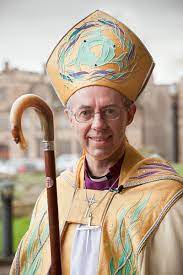The Archbishop and the Minister

On Easter Sunday, Archbishop Justin Welby claimed that there were “serious ethical questions” about the Government initiative to send single migrants to Rwanda for their asylum cases to be processed. In turn, government supporters defended the policy. For what it is worth, this seems to me to be all part and parcel of ethical and political debate that is the hall-mark of a free country; there are some places where this could not possibly happen. Whilst I share the Archbishop’s reservations about this particular policy, I can understand arguments that we need to take action to stop the people traffickers and the deaths that happen as a result. Indeed, many who defended the policy made this point. But what struck me was the response of one MP, Ben Bradley, at least as his words were quoted in a national newspaper.
“I think we separated the Church from the state a long time ago, so commenting on government policy is not Justin Welby’s job. He’s usually way out of tune with public opinion and he undermines the role of the church when he comes out with daft statements like this. This will prove to be a very popular policy with the British public”.
Leaving aside the sub-text that politics should only be left to professional politicians, Mr Bradley seems to be of the view that the church should do only what is popular. Perhaps he needs to reread the account of the crucifixion, where Pontius Pilate, the professional politician in charge of Jesus, knew what he should do with an innocent man, but instead followed the wishes of the crowd, released a murderer and executed Jesus. Which of course, was very popular, for a while.